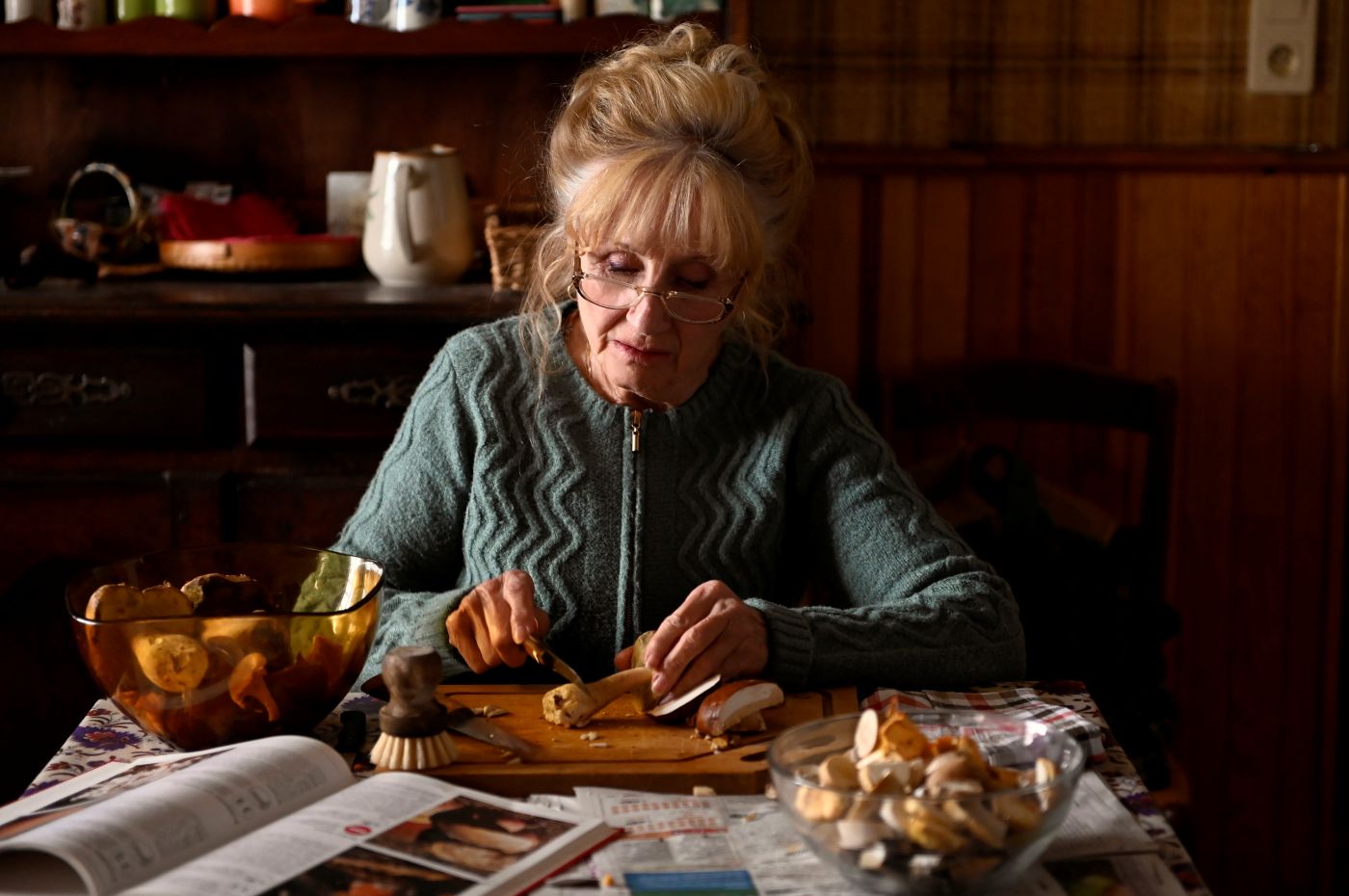by Alireza Hatamvand
Worth: $15.00
FilmInk rates movies out of $20 — the score indicates the amount we believe a ticket to the movie to be worth
Cast:
Hélène Vincent, Josiane Balasko, Ludivine Sagnier, Pierre Lottin
Intro:
… seemingly simple yet deeply intricate …
In the final scene of the film, we see Valérie, for the first time, walking toward Michèle with an open heart, extending her hand toward her. It seems that Michèle has finally found redemption. But why? The answer lies in the film’s opening sequence — a beautifully crafted scene set in a church, where the preacher recounts the well-known story of Mary Magdalene. A story that deeply resonates with Michèle. At the end of the tale, the preacher, quoting Christ, says that all of Mary Magdalene’s sins were forgiven because she loved — just like Michèle.
François Ozon, a representative of the new generation of French cinema who has shown in his previous works a preoccupation with the elderly, tells the story of a lonely old woman who was once a sex worker and now wants nothing from the world except to enjoy life by caring for her grandson, Lucas — a joy that her daughter, Valérie, has deprived of her. Valérie never loved her mother and never accepted being the daughter of a prostitute. Things get worse when Valérie is (presumably) accidentally poisoned, severing Michèle’s relationship with both her daughter and grandson. On the other side of the story, we have Marie-Claude — Michèle’s friend from their former life — and her imprisoned son, Vincent. Vincent’s release from prison and his somewhat enigmatic behaviour gradually take the story into a realm of mystery and ambiguity.
The first turning point of the story comes when Michèle learns about Valérie’s death — precisely at a moment when the audience knows that Vincent was in Michèle’s apartment at the time of death. But the moment of death is never shown, nor is it ever clearly spoken about in the narrative.
Was it an accident or a murder? It is the first question that the film raises. The second: if it was murder, was Michèle involved? Without a doubt, Ozon has intentionally withheld crucial moments from the audience. Yet perhaps more captivating than the unseen moments are the numerous clues supporting almost any scenario. For instance, Michèle’s generous payments to Vincent, her strange nervousness on the day of the death, and the dynamic between her and Vincent after the incident might all seem incriminating. On the other hand, Vincent’s interaction with Lucas’s old toys in the shed and the way Michèle’s words affected him could suggest that the killing was his own independent act, which would point to Michèle’s innocence. Some details — like Vincent leaving his phone behind not only on the day of the death but on another occasion too, or his candidness with his mother about being in Paris — also potentially can clear his name. Yet, even these clues are counterbalanced by details like his unusual outfit when entering Michèle’s apartment.
The list of these signs goes on. These details, placed skillfully before and after the death, through precise dialogue, carefully crafted actions, and smart direction, keep the viewer in an ‘Ozonian’ state of ambiguity — and that alone is highly commendable. But paradoxically, this very strength also becomes a weakness. When we look at the beginning and the end of the film — the bookends that frame and guide the film’s theme — it seems that instead of supporting the core theme, much has been directed toward creating ambiguous situations. That ambiguity is important, even fundamental to the story, but perhaps it would have been better if some of the scenes that generated ambiguity had been sacrificed to make room for ones that more effectively reinforce the film’s central theme.
Despite all this, the ambiguities do lead to a meaningful and impactful point. When Lucas is confronted by the police officer’s questions and suspicion toward Vincent, he seems to adopt a pragmatic approach, reminiscent of the boy in Anatomy of a Fall. Or, in another reading, perhaps he knows who caused his mother’s death and forgives them instantly. And that would be his second act of forgiveness. His first was when he found out about his grandmother’s past: though he was upset for a few days, he forgave her — something Valérie never did and hence never found peace until her dying breath. Lucas, while not the main character, through his vital decisions and acts of forgiveness, grants peace and redemption not only to himself but also to Michèle and even to Vincent — in a fall where, perhaps, loving is more important than uncovering the truth.
Besides the detailed and tightly written screenplay, it is Hélène Vincent’s flawless performance that brings life to Michèle’s complex and mysterious character and plays a central role in driving all of the film’s intentions forward. Neither the emotional nor the enigmatic moments would have been possible without her subtle and layered acting.
With this seemingly simple yet deeply intricate film, François Ozon once again showcases his talents. It may be difficult to precisely rank this work within his broader filmography, but what’s certain is that this is a thoughtful film — both compelling and impactful for a wide range of viewers.




